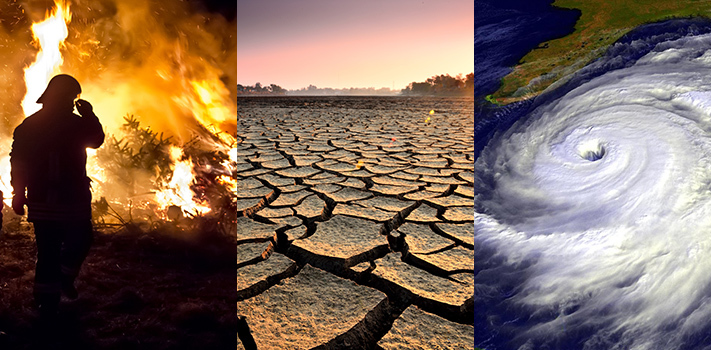The first line that I will be highlighting from this chapter comes from page 68 in the book and talks about the fact that only a slight change in temperature of a few degrees can have lasting impacts on climate all around the globe.
It is quite a frightening thought that only a change of a couple degrees Fahrenheit can cause such widespread changes in our climate. We are all used to weather changes in our daily life, temperatures here in Florida can be 90 degrees one day and 60 the next during Winter. While that would constitute a change in the weather, a distinct difference from climate, which is the weather over a longer period of time. Established climate patterns are all trending upwards in regards to temperature, and in the last hundred years has already risen a few degrees, which has caused an uptick in the intensity of storms around the globe."A change of only a few degrees in the global average temperature has a significant impact on the climate as a whole."Robertson, Margaret. Sustainability Principles and Practice. Routledge, 2017.
"Earth’s climate is warming and it is doing so at a rate that is unprecedented. The primary driver is something called the greenhouse effect."Robertson, Margaret. Sustainability Principles and Practice. Routledge, 2017.
 The warming of the planet is being driven by the burning of fossil fuels, which come from plants that have been turned into fuel that died millions of years ago and are used to power most of the things in our lives. Burning fossil fuels releases gasses that help trap heat inside the planet, like methane, nitrogen, and carbon dioxide. Currently, burning fossil fuels and natural gasses is the predominant way we move around. Most of the cars around the world burn fuel in order to move us, so there needs to be a widespread change in how we gather energy and it has to be both cleaner and renewable. Without a doubt, we will eventually run out of fossil fuels. Once we do, we need other green energy solutions in order to be ready for when that does happen.
The warming of the planet is being driven by the burning of fossil fuels, which come from plants that have been turned into fuel that died millions of years ago and are used to power most of the things in our lives. Burning fossil fuels releases gasses that help trap heat inside the planet, like methane, nitrogen, and carbon dioxide. Currently, burning fossil fuels and natural gasses is the predominant way we move around. Most of the cars around the world burn fuel in order to move us, so there needs to be a widespread change in how we gather energy and it has to be both cleaner and renewable. Without a doubt, we will eventually run out of fossil fuels. Once we do, we need other green energy solutions in order to be ready for when that does happen.The warming of the planet is being driven by the burning of fossil fuels, which come from plants that have been turned into fuel that died millions of years ago and are used to power most of the things in our lives. Burning fossil fuels releases gasses that help trap heat inside the planet, like methane, nitrogen, and carbon dioxide. Currently, burning fossil fuels and natural gasses is the predominant way we move around. Most of the cars around the world burn fuel in order to move us, so there needs to be a widespread change in how we gather energy and it has to be both cleaner and renewable. Without a doubt, we will eventually run out of fossil fuels. Once we do, we need other green energy solutions in order to be ready for when that does happen."Since the start of the industrial era the concentration of CO2 in the atmosphere has risen almost 40 percent."Robertson, Margaret. Sustainability Principles and Practice. Routledge, 2017.
Picture credits: https://climate.nasa.gov/effects/
No comments:
Post a Comment